Premium Only Content
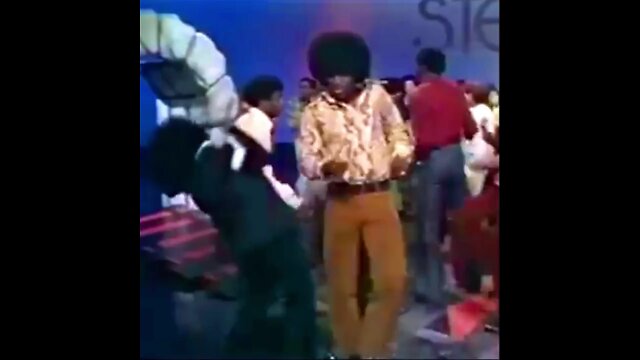
Superstition
On this date in 1973, STEVIE WONDER won four awards at The Grammys: 'Album of the Year' for the solid INNEVERSIONS, 'Best Male Vocal Performance' for YOU ARE THE SUNSHINE OF MY LIFE and 'Best R&B Song' and 'Best R&B vocal' for SUPERSTITION (Mar 2, 1973)
SUPERSTITION
Stevie Wonder wrote this about the dangers of believing in superstitions. Some of the bad luck superstitions he alludes to include walking under a ladder, breaking a mirror (said to bring seven years of bad luck), and the number 13.
This was intended for Jeff Beck, who was brought in to play some guitar parts on the album in exchange for a song. At one of the sessions, Stevie came up with the riff and wrote some lyrics, and they recorded a rough version of the song that day for Beck. It took Beck a while to record the song, and by the time he released it, Wonder's version had been out for a month and was a huge hit. Beck felt shortchanged, and made some statements in the press that Wonder didn't appreciate. In 1975, Beck released an instrumental version of Wonder's "Cause We've Ended As Lovers" on his album Blow By Blow. The album was a hit and helped solidify Beck's reputation as an elite guitarist.
Taking a cue from Marvin Gaye, who put musician credits on his album What's Going On, Wonder included credits on Talking Book. On this track, Stevie played Hohner clavinet, drums, and Moog bass. Two of his band members also contributed: Steve Madaio played trumpet and Trevor Lawrence played tenor saxophone.
Jeff Beck finally recorded his own version of this song in December 1972 with bass player Tim Bogert and drummer Carmine Appice. They recorded as Beck, Bogert and Appice, and while their album did well, their version of this song was hardly noticed.
This was recorded at Electric Lady Studios, which is where Jimi Hendrix recorded. The studios stayed active after Hendrix' death, with artists like Miles Davis and Deep Purple also recording there.
At the time, Wonder would keep the studio booked so he could record when inspiration hit. Stevie's bass player at the time, Scott Edwards said this was not always convenient for his band. "Because he does not have sight, he's not controlled by daylight," said Edwards. "So he may begin his night at midnight. Which is bad, because if they want you to come do an overdub or something, he may call you at 4 a.m. and say, 'Come on in.'"
This was Wonder's second #1 hit in the US. His first was with "Fingertips (Part 2)" in 1963, which he recorded as "Little" Stevie Wonder.
Wonder performed this song on Sesame Street in 1973 during the show's fourth season. It was recorded at the show's New York studios at a time when Wonder and his band were playing lots of gigs, and they treated the Sesame Street performance just like any other, extending it to nearly 7 minutes, complete with intricate musical shifts directed by Wonder. Video of the performance shows kids and puppets having a blast on the set, but the band remained focused, since getting distracted by a monster would not be a valid excuse for missing a change.
The album was called Talking Book because wonder considered the songs akin to chapters in a book that tell a whole story. On the cover is a rare photo of Wonder without his sunglasses on.
-
 2:15:01
2:15:01
The Quartering
4 hours agoChina PANICS Over Tariffs, Tesla Terrorist Gets 40 Years, TikTok Challenge KILLS 8 Year Old & More
120K33 -
 1:48:41
1:48:41
Right Side Broadcasting Network
4 hours agoLIVE: President Trump at Commander-in-Chief Trophy Presentation to the Navy Midshipmen - 4/15/25
30.8K4 -
 LIVE
LIVE
The HotSeat
2 hours agoJoe Biden Crawls Out of the Basement, Meanwhile AOC Cosplays Kamala
615 watching -
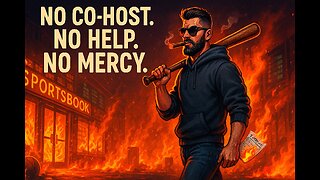 9:25
9:25
Talk Nerdy Sports - The Ultimate Sports Betting Podcast
59 minutes ago4/15/25 - Solo Mission: Play-In Carnage & Diamond Sniping
1 -
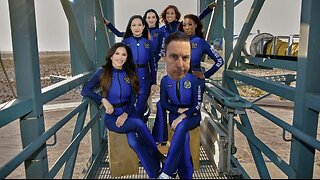 LIVE
LIVE
Jeff Ahern
1 hour agoTrending Tuesday with Jeff Ahern!
145 watching -
![[Ep 650] Left Victimizes Karmelo Anthony | Defund NPR/PBS | Guest Sam Anthony [your]NEWS](https://1a-1791.com/video/fww1/46/s8/1/1/X/o/C/1XoCy.0kob.1-small-Ep-650-Left-Victimizes-Karm.jpg) LIVE
LIVE
The Nunn Report - w/ Dan Nunn
2 hours ago[Ep 650] Left Victimizes Karmelo Anthony | Defund NPR/PBS | Guest Sam Anthony [your]NEWS
198 watching -
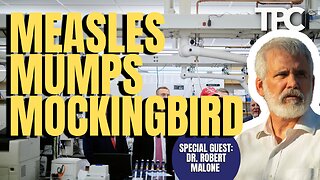 1:23:56
1:23:56
Tommy's Podcast
14 hours agoMMR & Operation Mockingbird | Dr. Robert Malone (TPC #1,727)
20.2K2 -
 1:16:16
1:16:16
Russell Brand
4 hours ago'Neo-Nazi' Satanic Plot To KILL TRUMP! Teen CHARGED With Murdering Parents – SF566
138K63 -
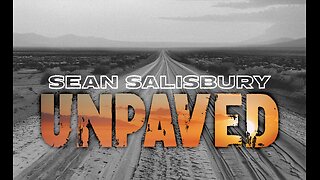 1:21:03
1:21:03
Sean Unpaved
5 hours agoWNBA's Newest Stars, NFL Trade Rumors, & White House Blunders
52.4K -
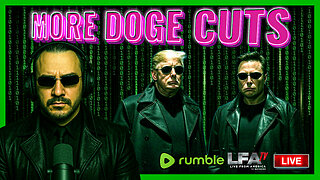 LIVE
LIVE
LFA TV
19 hours agoLFA TV - ALL DAY LIVE STREAM 4/15/25
991 watching